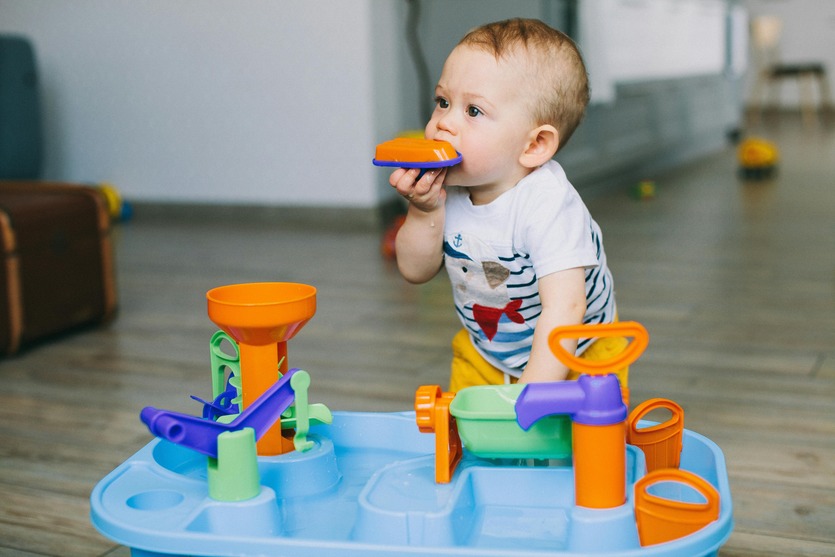As parents, it can be really stressful when your toddler starts biting. You might feel confused, embarrassed, or even a little frustrated. But don’t worry—stopping toddler biting is something most parents have to face, and it’s usually just a phase. It’s important to understand why toddlers bite and how to respond in a way that helps them stop. With some patience and a few practical steps, you can make sure this behaviour doesn’t stick around for long.
Why Do Toddlers Bite?
Stopping toddler biting starts with understanding why it happens in the first place. Toddlers might bite for many reasons, such as:
- Teething: When their gums are sore, biting can help relieve the discomfort.
- Frustration: Young children often don’t have the words to express how they feel, so biting becomes a way to release their emotions.
- Exploring: Some toddlers bite simply to explore new textures and sensations.
- Attention-Seeking: If they don’t know how to get your attention in other ways, they might bite to get a reaction.
Once you understand why your child is biting, it becomes easier to address the root of the issue.
Recognising Biting Triggers
To be successful at stopping toddler biting, try to notice the triggers. For example, does your child bite when they are tired or overstimulated? Do they bite more often in social settings with other children? Once you recognise these patterns, you can step in and redirect your toddler before the biting happens.
Pay attention to:
- Overstimulation: A busy or noisy environment may overwhelm your toddler, leading to biting.
- Social Situations: Being around other kids can make toddlers bite if they feel the need to protect themselves or their toys.
- Emotional Upsets: Anger, frustration, or feeling left out can trigger biting in some children.
How to Respond When Your Toddler Bites
When your toddler bites, staying calm is key to stopping toddler biting effectively. Yelling or punishing harshly won’t help them understand why biting is wrong. Instead, try these steps:
- Stay Calm: Take a deep breath and remember that your toddler isn’t trying to hurt anyone on purpose.
- Use simple words: Firmly say, “Biting hurts; we don’t bite people.” Make sure your tone is gentle but clear.
- Redirect Their Behaviour: Offer a teething toy or show them a different way to express their emotions.
- Comfort the Victim: Whether it’s another child or yourself, showing care for the person who was bitten helps your toddler see the impact of their actions.
By responding consistently in this way, you’ll help your child learn that biting isn’t acceptable.
Positive Ways to Discourage Biting
An important part of stopping toddler biting is encouraging positive behaviour. Here are some strategies to try:
- Teach Gentle Touch: Show your child how to use their hands gently and praise them when they do.
- Encourage Words: Help your toddler find the words to express their feelings instead of using their teeth.
- Reward good behaviour: Whenever your child handles frustration without biting, praise them. Simple recognition like, “I love how you used your words!” can reinforce the right behaviour.
When to Seek Help
While most toddlers will stop biting with the right guidance, it’s important to know when to seek help. If stopping toddler biting becomes a long-term challenge or if your child’s biting becomes harmful to others, consulting a paediatrician might be a good idea. They can offer advice on managing persistent biting behaviours.
Conclusion:
Stopping toddler biting is all about patience, understanding, and consistency. By recognising triggers, staying calm when biting happens, and encouraging positive alternatives, you can help your child move past this phase. Remember, with the right approach, biting doesn’t have to be a lasting issue. You’ve got this, and your child will soon learn better ways to express themselves!
FAQs:
Q1: Why is my toddler biting so much?
Biting is common in toddlers. They might bite because they are teething, frustrated, or exploring. It’s important to understand what is triggering the behaviour and help guide them towards more positive ways to express themselves.
Q2: How can I prevent my toddler from biting others?
You can prevent biting by keeping an eye out for triggers like overstimulation or frustration. Try to catch the behaviour before it happens and guide your child towards gentler actions like using words or touching softly.
Q3: What should I do when my toddler bites?
Stay calm and firmly but gently tell your child, “Biting hurts, we don’t bite people.” Then, redirect their behaviour. Offer alternatives like a teething toy or show them how to express their emotions with words instead of biting.
Q4: Is biting a sign of bad behaviour in my toddler?
No, biting is not a sign of bad behaviour. It’s usually just a phase that toddlers go through. With guidance and positive reinforcement, they will learn to express themselves in better ways.
Q5: Should I be worried if my toddler keeps biting?
If biting continues beyond the typical age or becomes harmful to others, you may want to seek advice from your paediatrician. However, most toddlers outgrow biting with the right guidance and patience.




